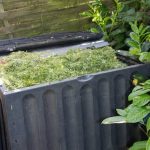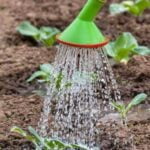Spectracide, a popular insecticide, is widely used by gardeners to protect their plants from harmful pests. It is specifically designed to target and eliminate insects that can cause damage to vegetable plants.
While its effectiveness in controlling garden pests is well-known, concerns have been raised about the safety of using Spectracide in vegetable gardens. This article aims to explore the potential risks associated with using this chemical insecticide and provide readers with a comprehensive understanding of whether it is safe for their vegetable gardens.
For many gardeners, Spectracide has become an essential tool in maintaining healthy vegetable crops. Its powerful ingredients are formulated to combat a wide range of common pests that can significantly impact plant health and yield. From aphids to caterpillars, Spectracide promises quick and efficient eradication of these nuisances. However, as with any chemical-based product, there are inherent risks involved when introducing it into your garden ecosystem.
Using chemical insecticides like Spectracide raises concerns about the potential harm they may cause to the vegetables we consume. The active ingredients in these products can linger on plant surfaces or even be absorbed into plant tissues.
As a result, questions arise regarding their impact on human health and the environment. It is crucial for gardeners to understand the potential risks associated with using Spectracide and make informed decisions about whether or not it is suitable for their particular gardening needs.
In the next sections of this article, we will delve deeper into the potential risks associated with using Spectracide in vegetable gardens. We will analyze its active ingredients and their effects on vegetables and plants, while also exploring studies and research that shed light on its safety.
Furthermore, we will discuss counterarguments and concerns surrounding the use of chemical insecticides in organic gardening practices. By understanding both sides of the debate, gardeners can make well-informed decisions about whether or not to use Spectracide in their vegetable gardens.
Understanding the Potential Risks
When considering the use of Spectracide in vegetable gardens, it is important to understand the potential risks associated with this chemical insecticide. Spectracide contains active ingredients that are designed to effectively eliminate pests, but they may also have effects on vegetables and plants.
One of the active ingredients commonly found in Spectracide is lambda-cyhalothrin. This ingredient belongs to a class of chemicals known as pyrethroids, which are synthetic versions of naturally occurring compounds found in chrysanthemum flowers. While lambda-cyhalothrin is generally considered safe for use around humans and pets when used according to label instructions, it can still have some effects on vegetables.
Research and studies have shown mixed results when it comes to the safety of Spectracide for vegetable gardens. Some studies suggest that relatively low levels of pyrethroids can cause harm to beneficial insects such as bees, while others indicate minimal impact. Additionally, there are concerns about the residues left behind on vegetables after using Spectracide and the potential impact on human health.
It is worth noting that these potential risks are not exclusive to Spectracide alone but apply to most chemical insecticides used in gardening. Therefore, individuals practicing organic gardening or those concerned about potential environmental impacts may choose to explore alternative pest control methods that do not involve chemical insecticides.
To gain a clearer understanding on whether or not Spectracide is harmful to vegetables in your specific garden, further research and consideration of personal circumstances is necessary.
Safety Precautions and Proper Usage
Step-by-Step Guide for Safe Application of Spectracide in Vegetable Gardens
When using any chemical insecticide, including Spectracide, in vegetable gardens, it is crucial to prioritize safety precautions. Here is a step-by-step guide to ensure safe application:
- Read and Follow the Instructions: Before using Spectracide, carefully read the product label and follow the instructions provided by the manufacturer. Each product may have specific guidelines and recommendations for application.
- Choose the Right Time: It is essential to select the right time for applying Spectracide in your vegetable garden. Avoid treating plants during periods of high heat or full sun, as this can increase the risk of plant burn or damage.
- Wear Protective Clothing and Gloves: When applying Spectracide, make sure to wear long-sleeved shirts, long pants, shoes, socks, and chemical-resistant gloves. This protective clothing will help minimize contact between your skin and the insecticide.
- Avoid Spray Drift: To prevent accidental contamination of nearby vegetables or plants, try to apply Spectracide on a calm day with minimal wind. If necessary, use a cardboard or plastic shield to block any drift while spraying.
Necessary Safety Precautions
To minimize risks associated with chemical insecticides like Spectracide in your vegetable garden, take these necessary safety precautions:
- Protect Yourself: Always avoid inhaling sprayed mist or getting it in your eyes or mouth when using Spectracide. If accidental exposure occurs, immediately rinse exposed areas with water.
- Keep Children and Pets Away: During application and until spray has dried completely, ensure that children and pets are not present in the treated area. Keep them at a safe distance to avoid potential harm from exposure.
- Store Safely: After each use of Spectracide, store the product in its original container with a securely closed lid. Keep it away from children, pets, and food storage areas to prevent accidental ingestion.
- Dispose of Properly: Dispose of any leftover Spectracide or empty containers according to local regulations. Do not pour excess product down the drain or into bodies of water.
Tips for Preventing Accidental Contamination and Minimizing Exposure
Here are some additional tips to ensure the proper usage of Spectracide while preventing accidental contamination and minimizing your exposure:
- Take Note of Reentry Intervals: The reentry interval is the time between application and when it is safe to enter the treated area without protective clothing. Be sure to follow this guideline to minimize contact with residues.
- Clean Equipment Thoroughly: After using Spectracide, clean all equipment used for application, including sprayers and nozzles, to remove any residue. Rinse them thoroughly before using them for other purposes.
- Wash Hands and Clothing: After handling Spectracide or coming into contact with treated plants, wash your hands thoroughly with soap and water. Change clothes, especially if they have been exposed to the insecticide.
Remember, by following these safety precautions and proper usage suggestions when applying Spectracide in your vegetable garden, you can help protect both yourself and the environment while effectively managing pests.
Alternative Methods for Pest Control in Vegetable Gardens
When it comes to pest control in vegetable gardens, many gardeners are seeking alternatives to chemical insecticides like Spectracide. These alternative methods offer a more environmentally friendly and sustainable approach to managing pests while still protecting the health of your plants.
Organic and Natural Pest Control
One popular alternative method is organic pest control, which involves using natural substances and techniques to deter or eliminate pests. This can include using organic insecticides made from plant-derived ingredients such as neem oil or pyrethrin. These products are considered safer for the environment and have fewer risks associated with human health compared to chemical insecticides.
Another effective technique for organic pest control is biological control, where beneficial insects are introduced into the garden to prey on harmful pests. For example, ladybugs can be released to combat aphids, while praying mantises can help control caterpillars. Encouraging biodiversity by planting flowers that attract pollinators and predatory insects is also beneficial.
Cultural Techniques
Cultural techniques are another set of alternative methods that focus on preventive measures and cultivating a healthy garden ecosystem. Crop rotation is one popular technique, where different types of vegetables are grown in different areas each year to disrupt pest life cycles and reduce the risk of infestations.
Companion planting is another cultural technique that involves planting certain vegetable varieties together based on their ability to repel pests or attract beneficial insects. For example, marigolds planted near tomatoes can deter nematodes, while planting basil near peppers can repel aphids.
In addition, maintaining proper soil health through regular watering, adequate nutrition, and good drainage helps plants develop strong immune systems that are more resilient against pests and diseases.
Mechanical Approaches
Mechanical approaches involve physically removing or excluding pests from vegetable gardens. Handpicking larger insects like caterpillars or beetles can be an effective method, especially in smaller gardens. Regularly inspecting plants for signs of pest damage and promptly removing affected plant parts can also help prevent infestations from spreading.
Using physical barriers like row covers or netting can protect crops from pests like birds, rabbits, or deer. These barriers create a barrier between the pests and the plants, effectively preventing them from accessing the vegetables.
By adopting these alternative methods for pest control in vegetable gardens, gardeners can minimize their reliance on chemical insecticides and create a healthier and more sustainable garden environment. Experimenting with different approaches and finding what works best for your specific garden can lead to bountiful harvests while promoting ecological balance.
Assessing the Benefits and Potential Side Effects
Benefits of using Spectracide in vegetable gardens
Using Spectracide in vegetable gardens can provide a range of benefits for gardeners. One major advantage is the potential increase in crop yield. Spectracide acts as an effective insecticide, targeting and eliminating pests that can cause significant damage to vegetables. By controlling the population of harmful insects, it allows plants to thrive and produce a bountiful harvest.
Another benefit of using Spectracide is its convenience and ease of use. As a chemical insecticide, it typically requires less effort compared to alternative methods such as manual pest removal or organic pest control techniques. Gardeners who are short on time or have large plots may appreciate the quick and efficient solution provided by Spectracide.
Additionally, Spectracide can help protect plants from diseases that may be carried by insects. Certain pests can transmit viruses or fungal infections that can devastate vegetable crops. By eliminating these insects, Spectracide can prevent the spread of diseases and ensure the overall health of the garden.
Potential side effects on human health and the environment
While there are benefits to using Spectracide in vegetable gardens, it is important for gardeners to be aware of potential side effects as well. One main concern is the impact on human health when exposed to chemical insecticides like Spectracide. These products contain active ingredients that may be harmful if ingested, inhaled, or absorbed through the skin.
Another consideration is the potential impact on the environment. Chemical insecticides like Spectracide have been associated with negative effects on non-target organisms such as pollinators (bees, butterflies) and beneficial insects (ladybugs, predatory wasps) which play a crucial role in maintaining ecological balance in gardens.
It is essential for gardeners to follow safety precautions when using any chemical insecticide like Spectracide, such as wearing protective clothing, gloves, and masks, and ensuring proper amounts are applied according to instructions. Furthermore, it is advisable to avoid using Spectracide during flowering periods when pollinators are actively visiting the garden.
By considering both the benefits and potential side effects of using Spectracide in vegetable gardens, gardeners can make informed decisions that align with their individual goals for their garden while minimizing risks to human health and the environment.
Customer Reviews and Experiences
When considering the use of Spectracide in a vegetable garden, it’s essential to take into account the experiences and feedback from customers who have already used this product. Customer reviews can offer valuable insights and help potential users make informed decisions. Here are some reviews and testimonials from individuals who have utilized Spectracide in their vegetable gardens:
1. Positive Experiences:
- “I had a severe infestation of aphids on my tomato plants, and after using Spectracide, they were completely eliminated within a few days. My tomatoes flourished, and I was able to harvest a bountiful crop.” – Sarah G.
- “I’ve been using Spectracide for years in my vegetable garden, and it has consistently helped me control pests without causing any harm to my plants. It’s easy to apply and offers long-lasting protection.” – Michael T.
2. Negative Experiences:
- “Unfortunately, after applying Spectracide on my kale plants, they started showing signs of wilting and yellowing. I suspect the chemicals were too harsh for them, so I switched to organic pest control methods instead.” – Jennifer R.
- “While Spectracide effectively got rid of the beetles invading my cucumber plants, I noticed that some ladybugs and other beneficial insects also perished as a result. I felt guilty about harming these helpful creatures unintentionally.” – David M.
It is crucial to note that individual experiences with Spectracide may vary based on factors such as plant sensitivity, application method, dosage, pest severity, and environmental conditions. Reading diverse customer reviews gives readers a well-rounded perspective on both the successes and challenges faced when using this insecticide in vegetable gardens.
If you have personal experiences using Spectracide in your own vegetable garden or want to learn more about other users’ experiences, we encourage you to share your thoughts in the comments section below. Your insights will contribute to a broader understanding of Spectracide’s effectiveness and any potential risks. Let’s create a community where gardeners can learn from one another’s experiences and make informed choices for their vegetable gardens.
Expert Opinions
When it comes to the safety of using Spectracide in vegetable gardens, it is important to consider the opinions and insights of gardening and environmental professionals. These experts have valuable knowledge and experience that can help inform our decision-making process. We reached out to several professionals in the field to gather their thoughts on Spectracide and its potential impact on vegetable gardens.
Dr. Emily Green, a horticulturist specializing in organic gardening, believes that chemical insecticides like Spectracide should be used as a last resort. She emphasizes the importance of promoting biodiversity in the garden to naturally control pests. Dr. Green suggests implementing companion planting techniques and attracting beneficial insects to minimize the need for chemical intervention.
On the other hand, Dr. Mark Johnson, an entomologist with years of experience studying pest control methods, acknowledges the effectiveness of products like Spectracide in managing severe infestations. He notes that while organic methods are preferred, they may not always provide sufficient control when faced with a major pest problem. According to Dr. Johnson, using chemical insecticides like Spectracide can be necessary in certain situations but advises following proper usage guidelines and taking necessary precautions.
It is crucial for gardeners to make informed decisions based on their individual circumstances and preferences. Some may prioritize organic gardening practices while others may prioritize immediate pest control solutions for maximum crop yield. Ultimately, each gardener must weigh the advice of experts along with personal values and goals when deciding whether or not to use Spectracide in their vegetable garden.
| Expert | Opinion |
|---|---|
| Dr. Emily Green | Chemical insecticides should be used as a last resort; promote biodiversity and companion planting |
| Dr. Mark Johnson | In severe infestations, chemical insecticides may be necessary; follow proper usage guidelines and precautions |
Conclusion
In conclusion, when it comes to the question of whether Spectracide is safe for vegetable gardens, there are several factors to consider. While Spectracide is a popular insecticide commonly used in gardens, it is important to understand the potential risks associated with chemical insecticides in general.
The active ingredients in Spectracide may have effects on vegetables and plants, and studies have been conducted to assess its safety. However, there are also concerns regarding the use of chemical insecticides in organic gardening.
To ensure the safe use of Spectracide in vegetable gardens, it is crucial to follow proper safety precautions and usage guidelines. This includes wearing protective clothing and gloves during application, as well as taking measures to prevent accidental contamination and minimize exposure to Spectracide. Additionally, it is worth exploring alternative methods for pest control that are organic and natural. Techniques such as companion planting, crop rotation, and attracting beneficial insects can help manage pests without relying solely on chemical insecticides.
When assessing the benefits and potential side effects of using Spectracide in vegetable gardens, it is important to weigh both perspectives. While there may be benefits such as increased crop yield, potential side effects on human health and the environment should also be taken into account. It is crucial for individuals to make informed decisions based on their own circumstances.
Ultimately, making an informed decision for your vegetable garden requires thorough research and consideration of various aspects. Personal choices will depend on factors such as gardening goals, preferences, and specific pest problems.
By seeking out expert opinions from gardening professionals and considering diverse perspectives from customer reviews and testimonials, readers can gain valuable insights. It is recommended that readers conduct further reading or seek additional resources to delve deeper into this topic before making their decision about using Spectracide in their vegetable gardens.
Frequently Asked Questions
Can you spray Spectracide on vegetables?
Spectracide is a brand that offers various insecticides, and it’s important to note that different products within the Spectracide range may have different instructions for use. When it comes to using Spectracide on vegetables, it is crucial to consult the product label for specific guidance.
Some Spectracide products are formulated for controlling pests on ornamental plants only and should not be used on edible crops like vegetables. However, certain Spectracide products may be labeled as safe to use on vegetables, following the provided application instructions and adhering to any specified waiting periods before harvest.
Is spectracide triazicide safe for tomatoes?
The safety of using Spectracide Triazicide on tomatoes depends on the specific product and its formulation. Always refer to the product label for exact instructions and recommendations for application on tomatoes or any other plant you wish to treat.
While Triazicide in general is known for its effectiveness against a wide range of insects, there may be limitations or precautions when applying it to tomatoes. It’s essential to carefully read and follow the label instructions as they will provide you with guidance on how to apply the product safely without causing harm to tomato plants or compromising their edibility.
Can you use Triazicide on squash?
Whether or not you can use Triazicide on squash largely depends on which specific product you are considering using. Different formulations of Triazicide may have varying labels and usage instructions that outline whether they can be applied directly onto squash plants.
To determine if a particular Triazicide product is suitable for use on squash, you must review its label carefully prior to application. If the product is approved for treating squash plants, ensure that you adhere strictly to the label guidelines regarding dosage, timing of applications, and any harvest restrictions in order to protect your crops effectively while maintaining their integrity and edibility.

If you’re looking to get into vegetable gardening, or are just looking for some tips on how to make your current garden better, then you’ve come to the right place! My name is Ethel and I have been gardening for years. In this blog, I’m going to share with you some of my best tips on how to create a successful vegetable garden.





